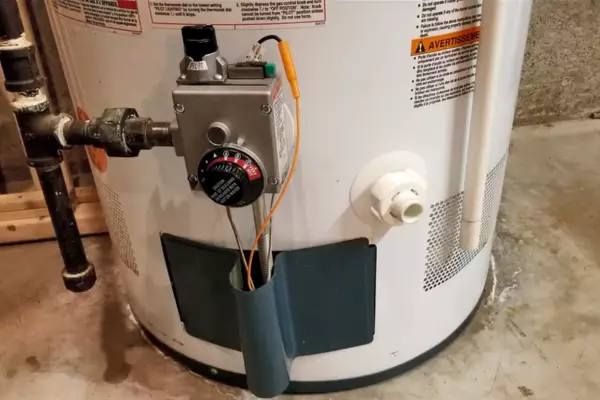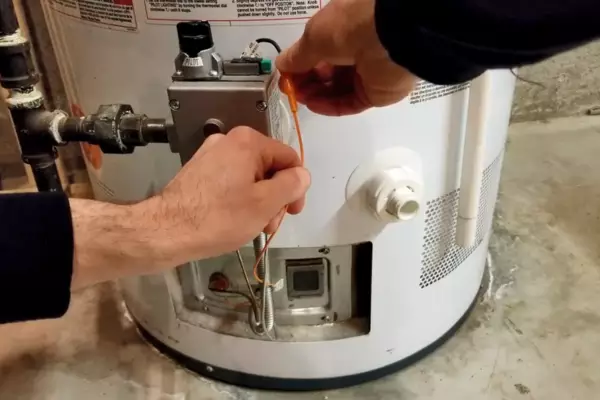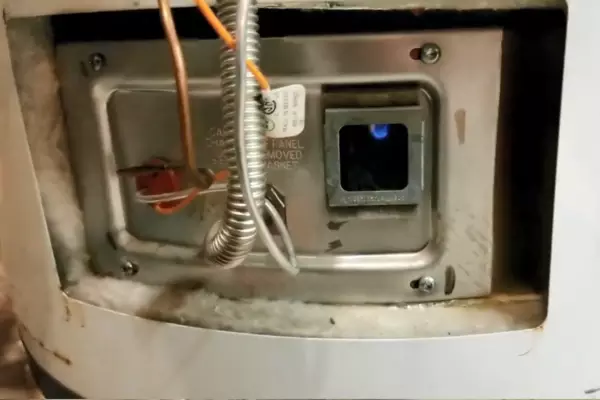When it comes to the home’s comfort, a hot water heater plays a crucial role. A key component of this system is the piezo igniter, responsible for lighting the gas burner. It can be a matter of concern when your water heater piezo igniter stops sparking.
Your water heater relies heavily on the piezo igniter. If it won’t spark, your system can’t produce hot water, impacting your comfort and convenience. The reasons behind a faulty igniter can range from simple wear and tear to more complicated issues.
A failing igniter is a common issue faced by many homeowners, especially those using brands like Rheem. Therefore, understanding the nuances of why igniters fail and how to handle these issues is essential for every homeowner.
Contents
Rheem Water Heater Igniter Issues
Rheem Igniter Functionality
Rheem is a popular brand that many homeowners prefer for their water heating needs. Like other heaters, Rheem water heaters use a piezo igniter to ignite the gas burner. Pressing the igniter button generates a spark, which leads to ignition.
Rheem Igniter: Common Issues
One prevalent issue is the Rheem water heater igniter not sparking. When this occurs, you might not get hot water, as the gas burner doesn’t ignite. The most common causes of this issue include a worn-out igniter, incorrect installation, dirt and grime buildup, or a faulty thermocouple.

Piezo Igniter Replacements
Piezo igniters play a vital role in the function of a water heater. When it stops working, it can cause a disruption in your hot water supply. Replacing a piezo igniter requires some skill, but with proper guidance, it can be accomplished.
Signs for Replacement
Identifying the signs that your igniter needs replacement is crucial. It’s important to take note of the following indicators:
- Persistent lack of spark: Even after repeated attempts, if the igniter fails to produce a spark, it’s a clear sign that replacement is required.
- Visible wear and tear: Physical damage such as cracks, deformations, or signs of burning indicate the igniter is at the end of its life.
- Inconsistent performance: If the igniter is working sporadically or requires multiple attempts to ignite, it may be an early sign of failure.
By recognizing these signs, you can ensure a timely replacement of the igniter and avoid any potential disruption in your hot water supply.
Steps to Replace Piezo Igniter
The replacement process of a piezo igniter may appear complicated, but by following these detailed steps, you can accomplish it:
- Turn off the gas supply: This is a critical safety measure to prevent any accidental gas leaks during the replacement process.
- Remove the access cover: The igniter is usually located behind an access cover on your water heater. Remove this cover to reach the igniter.
- Disconnect the igniter wire: The igniter is connected to the system via a wire. Carefully disconnect this wire.
- Remove the faulty igniter: The igniter is typically held in place by a couple of screws. Remove these screws to free the igniter.
- Install the new igniter: Place the new igniter in the same position as the old one. Make sure it’s secured with the screws.
- Reconnect the igniter wire: Reattach the wire to the new igniter.
- Replace the cover: Put the access cover back in place.
- Turn on the gas supply and test the new igniter: Finally, turn on the gas supply and test the new igniter. It should create a spark and light the burner.
Remember to read and follow the manufacturer’s instructions when installing the new igniter.

Non-Sparking Gas Water Heater Igniters
A gas water heater relies on the igniter to start the heating process. If your gas water heater’s igniter is not sparking, you might face challenges in getting hot water. This issue can be due to several reasons.
Causes for Non-Sparking Igniters
The causes of a non-sparking igniter can vary:
- Weak or absent battery: If your igniter operates on a battery, it might fail to spark due to a weak or dead battery. In this case, replacing the battery can solve the problem.
- Inadequate gas supply: For the igniter to spark, it needs an adequate supply of gas. If the gas valve is not fully open or if there’s a problem in the gas supply, the igniter might fail to spark.
- Faulty spark module: The spark module controls the sparking process. If it’s faulty, the igniter won’t spark.
Addressing these issues can help you restore the functioning of your gas water heater’s igniter.
Igniter Issues in Hot Water Tanks
Hot water tanks, like other water heaters, also use igniters to start the heating process. When the igniter in a hot water tank stops sparking, it can disrupt the hot water supply. Understanding the issues that can lead to this situation can help you address them effectively.
Specific Problems in Hot Water Tanks
Hot water tanks may encounter specific issues related to the igniter:
- Worn-out igniters: Over time, the igniter in your hot water tank can wear out due to constant use, leading to a failure in sparking.
- Incorrect installation: If the igniter is not installed properly, it might fail to spark. Make sure the igniter is installed as per the manufacturer’s instructions.
- Faulty thermocouple: The thermocouple is a safety device that shuts off the gas supply if the pilot light goes out. If it’s faulty, it might prevent the igniter from sparking.
Addressing these issues can help restore the functioning of your hot water tank’s igniter.
DIY versus Professional Assistance
While many igniter issues can be resolved through a DIY approach, it’s essential to know when to seek professional assistance. Let’s explore this in more detail.
Evaluating Your Expertise
Before embarking on a DIY repair, it’s important to assess your skills. If you’re comfortable with using tools and have a basic understanding of how your water heater works, you might be able to handle minor issues like cleaning the igniter or replacing the battery. However, if you’re unsure about any part of the process, it’s best to call in a professional to avoid causing further damage to the unit.

When to Call a Professional
In some situations, professional help is the best course of action. Here are some scenarios when it’s wise to call a professional:
- Replacing the igniter: While this can be done by yourself, if you’re not confident or if the igniter is located in a hard-to-reach spot, you might need a professional.
- Replacing the thermocouple: This is a delicate process that involves handling the gas valve and other sensitive components. It’s best to leave this to a professional to avoid safety hazards.
- Adjusting the gas valve: If the issue is related to the gas supply, it involves dealing with potentially harmful gases, and a professional should handle it.
Safety Measures
Dealing with water heater repairs involves certain risks, especially when dealing with gas-powered units. Therefore, it’s crucial to observe safety measures.
Basic Precautions
Here are some basic safety measures to consider during the repair process:
- Turn off the gas supply: Always turn off the gas supply before starting any repair work on your water heater. This helps prevent accidental gas leaks.
- Work in a well-ventilated area: Ensure the area where you’re working is well-ventilated. This helps dissipate any gas that might leak during the repair process.
- Use appropriate tools: Always use the right tools for the job. This not only makes the task easier but also helps prevent accidental damage to the water heater or injury to yourself.
Handling Gas Safely
When dealing with a gas-powered appliance, it’s crucial to handle the gas supply safely. Here are some tips:
- Avoid open flames: Keep open flames away from the area where you’re working. This includes cigarettes, candles, or any other source of ignition.
- Check for gas leaks: Before and after the repair, check for gas leaks. You can do this by applying a soapy water solution to the gas line connections and looking for bubbles. If you see bubbles, it indicates a gas leak, and you should shut off the gas and call a professional.
Maintenance Tips
Preventive maintenance is the best way to avoid major issues with your water heater. Here are some maintenance tips that can help extend the lifespan of your igniter and your water heater as a whole:
- Regular checks: Perform routine checks on your water heater, including the igniter. Look for signs of wear and tear and ensure it’s working correctly.
- Proper installation: Make sure the igniter is properly installed. Incorrect installation can lead to early failure.
- Clean the igniter: Keep the igniter clean. Dirt or grime buildup can interfere with its functioning.
- Avoid excessive force: When operating the igniter, avoid using excessive force. This can damage the igniter and reduce its lifespan.
Frequently Asked Questions
Why is my piezo igniter not sparking?
The most common reasons include wear and tear, incorrect installation, dirt or grime buildup, or a faulty thermocouple.
How can I replace my piezo igniter?
You can replace it by turning off the gas supply, removing the access cover, disconnecting the igniter wire, removing the faulty igniter, installing the new one, reconnecting the wire, replacing the cover, and testing the new igniter.
When should I call a professional?
If the igniter issue persists after your attempts to fix it or if you’re dealing with complex issues like replacing a thermocouple or adjusting the gas valve, it’s best to call a professional.
Conclusion
Igniter issues in water heaters are a common occurrence. These can be addressed effectively once you understand the underlying causes. Whether it’s a Rheem water heater or a generic hot water tank, the issues are generally similar, involving wear and tear or installation errors.
Replacement of the igniter may seem daunting, but with proper guidance and safety measures, it’s manageable. However, certain situations demand professional intervention. Therefore, knowing when to call for expert help is crucial.
The key to avoiding major breakdowns lies in regular maintenance and timely intervention. By taking these steps, you can ensure the longevity of your water heater and uninterrupted comfort in your home.

